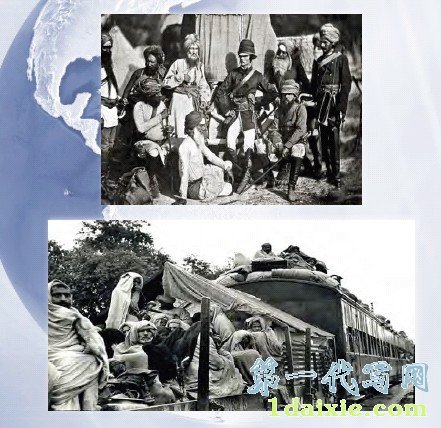Introduction to Diaspora and Transnational Studies
DTSB01Y
What is Diaspora II?
Class 3
Announcements
DTS – a major, a minor
Assignment 1 described on course
portal
Two Readings for next week
Abu-Lughod
Curtin
DTS Lecture Series
A PUBLIC LECTURE WITH ROSHINI
KEMPADOO
Photographer, Media Artist, and Lecturer
Wednesday October 20
4:00pm JH100A
Imagining An(O)ther world:
Womenʼsnarratives, internationalism and
resistance in the artwork /Arrival /(2010)
The politics of nominalization
“I am rethinking the uses of diaspora more
precisely to compel a discussion of the politics
of nominalization, in a moment of careless
rhetoric when such a question is often the
first casualty. An intellectual history of the
term is needed, in other words, because
diaspora is taken up at a particular
conjuncture in black scholarly discourse to do
a particular kind of epistemological work”
(Edwards 2001: 46)
Questions -
An intellectual history of the term is
needed?
Diaspora does “a particular kind of
epistemological work”?
You can’t hate the roots of a
tree
Malcolm X (May 19, 1925 – February
21, 1965 )- an African-American Muslim
minister and human rights activist. He
advocated for the rights of African
Americans
Diasporas Envisioned
“A member’s adherence to a diasporic
community is demonstrated by an
acceptance of an inescapable link with
their past migration history and a sense
of co-ethnicity with others of a similar
background.”
Robin Cohen (1987: ix)
Key Elements
Places where people dwell: country,
domicile, land
Homeland: The place they view as their
traditional domicile.
Hostland : The places outside their homeland
where diasporans live.
Acceptance of an inescapable link
Past migration history
A sense of co-ethnicity
We have to fight over the
concept diaspora…
“we have to fight over the concept diaspora and to
move it away from the obsession with origins, purity
and invariant sameness. Very often the concept of
diaspora has been used to say, “Hooray! we can
rewind the tape of history, we can get back to the
original moment of our dispersal!” I’m saying
something quite different. That’s why I didn’t call the
book diaspora anything. I called it Black Atlantic
because I wanted to say, “If this is a diaspora, then
it’s a very particular kind of diaspora. It’s a diaspora
that can’t be reversed”
- Paul Gilroy quoted in Edwards 2001: 63
Cohen – Types of Diasporic
Communities
Victim - Africans, Armenians
Labour - Indians
Imperial - British
Trading - Chinese and Lebanese
Cultural - Caribbean
Victim Diaspora
Definition – The idea of dispersal
following a traumatic event in the
homeland, to two or more foreign
destinations (Cohen 1997: 2)
Example – African Slave Trade
Trade Diaspora
Definition – A nation of socially interdependent,
but spatially dispersed communities, bounded
together by a common commercial culture
(Cohen 1997: 83).
Example – Merchants from one community would
live as aliens in another town, learn the
language, the customs, and the commercial
practices of their hosts then start the exchange
of goods.
Labor Diaspora
Definition – Emigration in search of work.
Example – Undocumented Latin American
immigrants in the United States
Imperial Diasporas
Definition –
Settlements
established by one
power for colonial or
military purposes
(e.g., British India)
Cultural Diaspora
Definition – “In a global age where space
itself has become re-inscribed by
cyberspace, a diaspora can to some
degree be cemented or recreated
through the mind, through artifacts and
popular culture, and through a shared
imagination” (Cohen 2007: 8).
Some points highlighted…
Contested visions of the homeland
Vision of homeland is a vision of the
self
Self-sufficiency
The metaphor of the table
